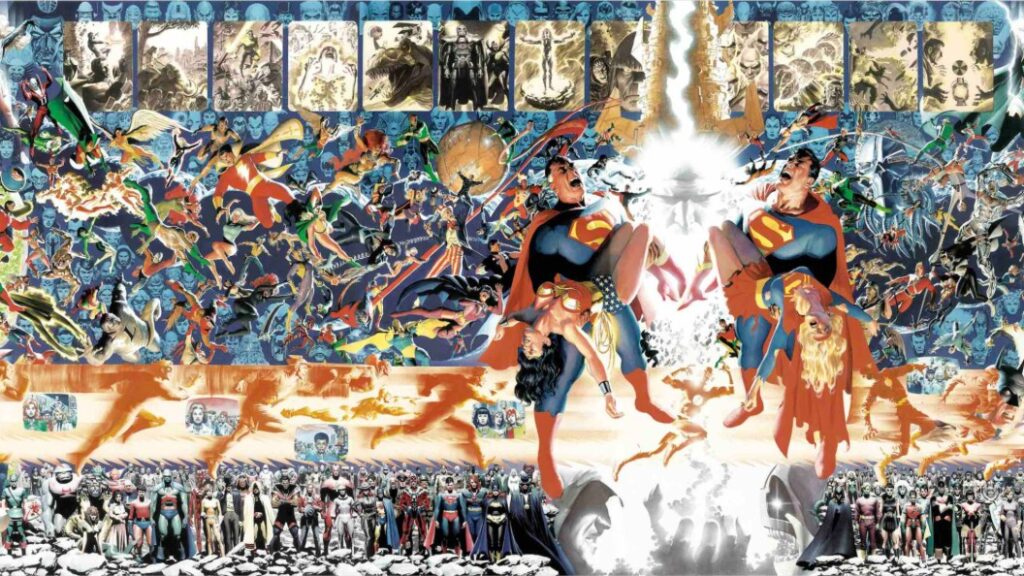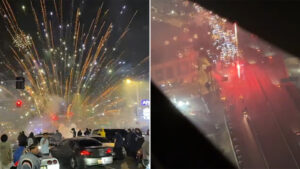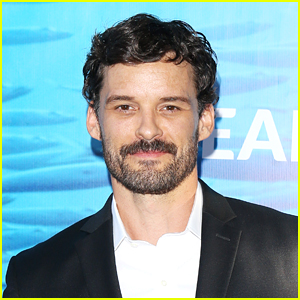
The 1980s marked a transformative era for comic books, particularly for DC Comics, which emerged as a leader in redefining the superhero genre. This decade saw the medium mature beyond its traditional boundaries, offering stories that were not only entertaining but also profound and thought-provoking. DC Comics was at the forefront of this revolution, producing works that have since become iconic. Here, we delve into the ten best DC stories from the 1980s, each a testament to the era’s creative renaissance.
The Artistic Evolution of Batman
While Batman has consistently been a staple of comic book excellence, the 1980s were particularly significant for the Dark Knight. Among the notable works of this period is Arkham Asylum: A Serious House on Serious Earth by Grant Morrison and Dave McKean. This story is a psychological horror masterpiece that reimagines the traditional Arkham breakout narrative with a chilling twist. McKean’s haunting artwork complements Morrison’s script, creating an atmosphere that elevates the story beyond typical superhero fare. Collectors and fans alike regard the first printing, with its McKean-designed hardcover, as a prized possession.
Political Narratives and Social Commentary
The 1980s were a time of political upheaval, and comics were not immune to these influences. Alan Moore’s V for Vendetta, initially serialized in the UK before being published by DC in the late ’80s, stands out as a seminal work of political fiction. The story, set in a dystopian future, explores themes of totalitarianism and resistance. Moore’s narrative, paired with David Lloyd’s stark illustrations, remains relevant today, resonating with contemporary movements and protests.
Another significant contribution to the decade’s political discourse was Camelot 3000 by Mike W. Barr and Brian Bolland. This series reimagines the Arthurian legends in a futuristic setting, blending science fiction with traditional myth. Bolland’s artistry brings Barr’s script to life, offering a mature and nuanced take on familiar characters and themes.
Redefining Superhero Teams
Marv Wolfman and George Perez’s work on The New Teen Titans was DC’s answer to the popularity of Marvel’s X-Men. Their storyline, “The Judas Contract,” is widely regarded as a high point in superhero team narratives. This arc introduced new characters and dynamics, such as Dick Grayson’s transformation into Nightwing, and explored complex themes of betrayal and identity.
Similarly, Grant Morrison’s Doom Patrol began with “Crawling From the Wreckage,” a story that embraced the bizarre and unconventional. Morrison, along with artist Richard Case, redefined the team book genre by focusing on character-driven narratives that challenged traditional superhero tropes.
The Rise of Meta-Narratives
Grant Morrison’s influence extended to Animal Man, where he infused the series with existential themes and meta-commentary. The initial issues, particularly #5, explore the boundaries between fiction and reality, setting the stage for a narrative that questions the nature of storytelling itself.
Paul Levitz and Keith Giffen’s The Great Darkness Saga in Legion of Superheroes further exemplifies the era’s penchant for epic storytelling. This saga is a quintessential superhero tale, filled with cosmic stakes and intricate plot twists.
Legacy and Impact
No discussion of 1980s DC Comics would be complete without mentioning Watchmen and Swamp Thing. Alan Moore and Dave Gibbons’ Watchmen deconstructed the superhero genre, offering a gritty and realistic portrayal of flawed heroes. Its impact on the medium is immeasurable, influencing countless creators and stories in the decades since.
Moore’s run on Swamp Thing, in collaboration with artists like Steve Bissette and John Totleben, transformed the series into a profound exploration of identity and humanity. This run is credited with paving the way for more mature and sophisticated storytelling in comics, heralding the British Invasion of American comics.
Finally, Crisis on Infinite Earths by Marv Wolfman and George Perez stands as a monumental achievement in comic book history. This crossover event redefined the DC Universe, streamlining its complex continuity and setting a precedent for future event comics. Its tagline,
“Worlds will live, worlds will die, and nothing will ever be the same,”
encapsulates its lasting impact.
The 1980s were a defining decade for DC Comics, characterized by innovation and a willingness to push boundaries. These stories not only entertained but also challenged readers, leaving a legacy that continues to influence the comic book industry today. As we reflect on these iconic works, we are reminded of the power of storytelling and its ability to inspire change and introspection.






